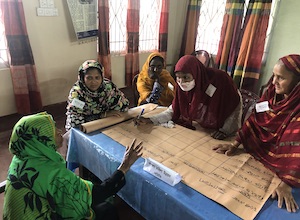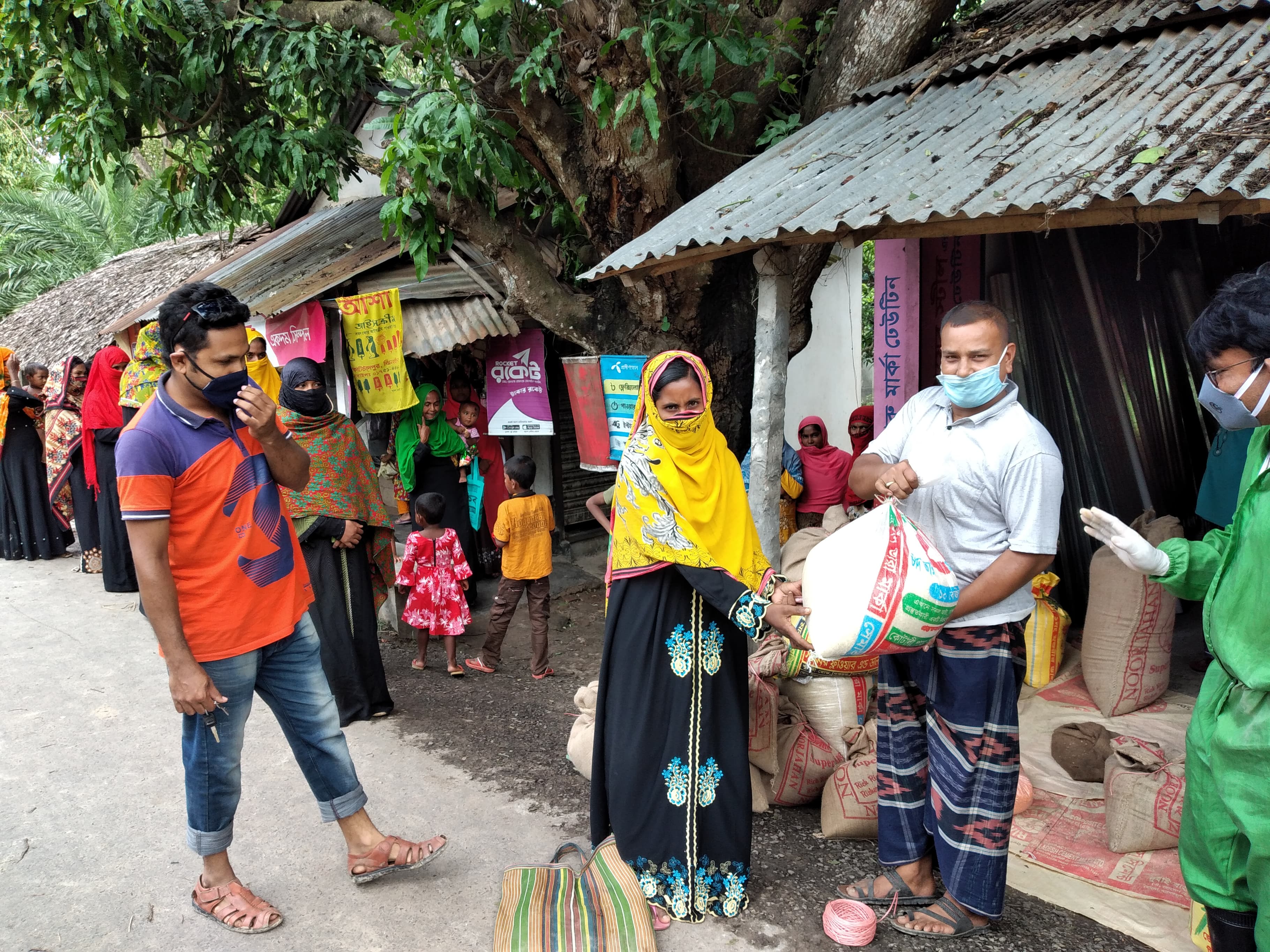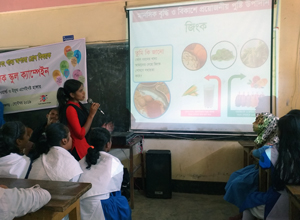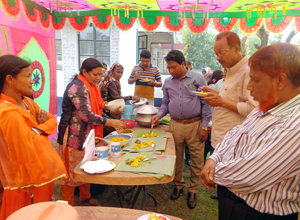4 Nov. 2011 Bangladesh
A center for organic farming is completed in Kaligonji. Activities have begun to improve their quality of life.
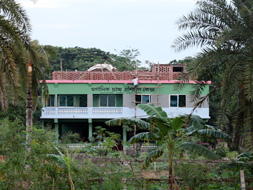
The completed center for organic farming
Center for Organic Farming for sustainable agriculture
In most contemporary farming households in the in the towns of Boda and Kaligonji where HFW is active, a decent living is unattainable regardless of effort. The large yield of the varieties of rice used in modern agriculture, for the most part, is limited to one generation. Because growing these varieties requires pesticides and chemical fertilizers due to the yearly price increases of such seeds, it has become more and more difficult to make a living. Further, this has resulted in health and environmental damage. Because of the use of pesticides, fish, which the poor depend on as a source of protein, have disappeared from the rice fields, and there have been an increased number of people living here complaining of bronchial and digestive ailments. With that in mind, HFW set out to propagate organic agriculture and raise the standard of living while at the same time protecting the environment. From 2005, such research was conducted at the center for organic farming in Boda. Drawing on this experience, in 2009, we started a center for organic farming in Kaligonji.
In March of 2010 most of the facilities at the center were complete. Prior to their completion, a collective farm was set up and, from 2009 to December of 2010, 15 training sessions were carried out in total. Overall, 350 farmers learned how to make fertilizer out of cow dung and fallen leaves, make pesticides from vegetables, do bee keeping, and learn techniques for the care of domestic farm animals.
Through this project, the people were able to contrive various means for operating the center in the future. From experiments with methods such as fermenting cow dung to produce methane gas as a self-sufficient energy source for use in cooking, and from the profits from the sale of milk or vegetable harvested from the center, funds were raised for operating the center (approximately 4500 yen per month).
Message from Bangladesh
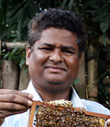
After three years as the head of the organic agricultural center in the town of Boda, I was put in charge of the center in the town of Kaligonji. Because more than 80% of the people in both the Boda and Kaligonji areas are engaged in agriculture, any change that makes it possible to carry on farming is the key to improving the lives of the impoverished people there. Since Kaligonji is closer to the capital than Boda, the influence of modern agricultural methods as advised by the government is very strong., and farming households are more evasive, suspicious and apprehensive about organic farming than in Boda. Further, rather than sandy soil as in Boda, Kaligonji’s soil is like clay and does not drain well. The research on methods and crops suitable for this land is conducted every day through trials in order to find an effective way of dealing with this problem. With this in mind, at present, approximately 150 farming households in the area have taken up organic farming. It is a matter of contributing one’s own efforts, so that from this time forward we can improve the livelihoods of majority of the households and protect the area’s environment.
Mr. Shaheen Hossain (the head of the cener for organic farming in Kaligonji)

